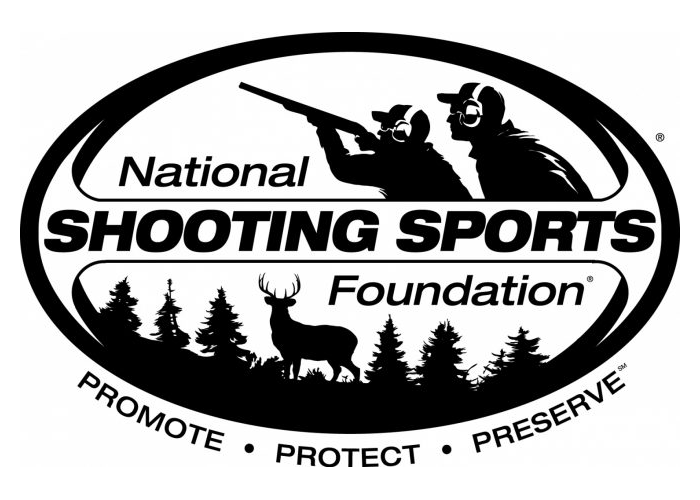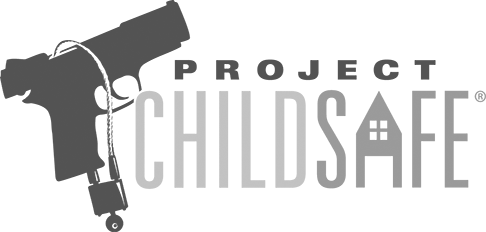YES YOU CAN LEGALLY OWN A SILENCER (AKA SUPPRESSOR OR 'CAN')
Suppressors in the U.S. – Ownership Is Growing Fast
According to the Bureau of Alcohol, Tobacco, Firearms and Explosives (BATFE), as of 2024, there are 3,536,623 registered suppressors (also known as silencers) in the United States.
That's a 1,140% increase since 2010, when there were just 285,087 registered silencers!
Which States Have the Most Registered Suppressors?
- Texas leads the nation with 599,133 registered silencers — that’s a lot of quiet shooting!
- Florida is next with 245,647 suppressors registered.
- Surprisingly, California has 18,484 registered silencers — even though private suppressor ownership is not legal in the state. (These are likely owned by licensed dealers or manufacturers.)
Is Owning a Suppressor Legal?
Yes! Owning a suppressor is legal in most U.S. states and does not require a special license; just compliance with federal law.
Suppressors are regulated under the National Firearms Act (NFA) as Title II (Class III) items. Purchasing a silencer is completely legal at the federal level, and your rights are protected by the Second Amendment (as reaffirmed by courts).
Fun Fact: Before the NFA was passed in 1934, suppressors were common household items especially in the eastern U.S. A Maxim silencer cost around $5.00 in the early 1900s!
States Where You Can Legally Own a Suppressor
You can legally purchase and own a suppressor in the following states (as of 2024):
Alabama, Alaska, Arizona, Arkansas, Colorado, Connecticut, Florida, Georgia, Idaho, Indiana, Iowa, Kansas, Kentucky, Louisiana, Maine, Maryland, Michigan, Minnesota, Mississippi, Missouri, Montana, Nebraska, Nevada, New Hampshire, New Mexico, North Carolina, North Dakota, Ohio, Oklahoma, Oregon, Pennsylvania, South Carolina, South Dakota, Tennessee, Texas, Utah, Vermont, Virginia, Washington, Wisconsin, West Virginia, and Wyoming.
⚠️ Laws change. Always verify the most current suppressor laws in your state. This is not legal advice.
States Where Suppressors Are Currently Not Legal for Private Ownership
Unfortunately, private suppressor ownership is not allowed in the following states and jurisdictions:
California, Delaware, Hawaii, Illinois, Massachusetts, New Jersey, New York, Rhode Island, and Washington, D.C.
However, some of these states do allow licensed dealers and manufacturers to possess suppressors under federal regulation.
The Benefits of Owning a Silencer (Suppressor)
Silencers, or suppressors, offer far more than just quiet shooting. From hearing protection to improved accuracy, suppressors enhance nearly every aspect of shooting — whether at the range or in the field.
1. Hearing Protection
The primary function of a suppressor is to reduce the sound pressure generated when a firearm is discharged. It works much like a car muffler — trapping and cooling expanding gases before they exit the barrel, which lowers the noise level.
- According to OSHA [29 CFR 1910.95], the safe threshold for impulse noise is 140 decibels (dB).
- Many suppressors can reduce gunshot sound to below this level, making shooting "hearing safe" without the need for external ear protection.
- Suppressors reduce the muzzle blast — the loudest component of a gunshot.
- Every 3 dB of reduction cuts the sound pressure roughly in half, due to the logarithmic nature of decibel measurements.
2. Improved Accuracy
Suppressors help shooters improve accuracy by:
- Reducing recoil and muzzle rise
- Minimizing shooter flinch due to loud noise
- Helping maintain better sight picture for faster follow-up shots
- Providing smoother shooting for new or recoil-sensitive users
3. Enhanced Hunting Experience
In states where hunting with suppressors is legal, benefits include:
- Less hearing damage during extended hunts
- Easier follow-up shots due to reduced recoil and muzzle movement
- Reduced disturbance to wildlife and other hunters
- More ethical shots: greater control = fewer wounded game animals
4. Increased Safety and Communication
Suppressors support better situational awareness:
- Lower sound levels allow for normal voice communication
- Makes it easier to hear range commands or warnings
- Reduces accidental discharges due to startle reflex
5. Ambient Noise Reduction
Suppressors help reduce noise pollution — a growing concern near outdoor ranges or private land:
- Lowers the audible signature of gunfire in outdoor areas
- Reduces noise complaints from neighbors
- Makes shooting ranges more community-friendly
6. Preservation of Night Vision
Suppressors significantly reduce muzzle flash, which:
- Helps preserve natural night vision
- Prevents “blooming” in night vision devices
- Supports low-light tactical and hunting applications
7. It’s Just More Fun
Suppressors make shooting more enjoyable:
- Less painful on your ears
- Reduces fatigue during long range sessions
- Adds a fun “cool factor” — many owners say it’s hard to go back once you shoot suppressed
- Great for families or new shooters who may be intimidated by loud gunfire
Fun fact: In the early 1900s, Maxim marketed silencers as family-friendly devices — one ad even showed a man shooting a suppressed rifle into a bullet trap inside his home!
What a Silencer Is Not
Thanks to Hollywood myths, many people wrongly believe silencers make guns “silent.” In reality:
- A suppressor is not silent, but it is hearing safe
- It suppresses sound, muzzle flash, and recoil — it doesn’t eliminate them
- “Silencer” is the legal term, but "suppressor" is more accurate
- Similar to a car muffler — it quiets, but doesn’t silence
Quieter — Yes. Silent — No.
Common Silencer Myths — Debunked
- Silencers are illegal.
False. Legal federally and in 42 U.S. states. - You can’t hunt with a suppressor.
False. 41 states currently allow it (rules vary). - A trust or corporation is required to pass a suppressor to an heir.
False. ATF Form 5 allows tax-free transfer to an heir. - Suppressors reduce bullet velocity.
False. They may slightly increase velocity due to added barrel length. - Suppressors hurt accuracy.
False. Most users experience improved accuracy thanks to recoil reduction and gas redirection. - Suppressors wear out quickly.
False. Most modern suppressors are durable, often outlasting several barrels depending on use. - Suppressors can’t cross state lines.
False. Silencers are exempt from the ATF’s interstate travel form (Form 5320.20), unlike other NFA items. - You need a license to own a suppressor.
False. No license required — just a background check, ATF Form 4, and a $200 tax stamp. - Suppressors make guns silent.
False. They reduce noise to safe levels, not complete silence. - Owning a suppressor forfeits your 4th Amendment rights.
False. Owning a suppressor does not impact your constitutional rights.
Who Can Own a Silencer?
You can legally purchase and own a firearm suppressor if you:
- Are at least 21 years old (to buy from an FFL licensed dealer*)
- Are 18+ (to acquire via NFA transfer—state laws vary)
- Are 18+ as a beneficiary of a qualified trust or corporation*
- Are a U.S. resident and live in a state that allows suppressor ownership
- Have no felony disqualifications or other legal restrictions
- Pass the ATF background check, typically through e-Forms (4 – 90 days)
* Individual ownership is simpler. Trusts allow multiple users and hassle-free inheritances. Corporations carry similar benefits but higher upkeep and complexity.
Does Owning a Suppressor Affect Your 4th Amendment Rights?
Absolutely not. Owning a suppressor does not waive your rights to privacy or protection from unreasonable searches. Contrary to myth:
- You don’t require a dealer's license—private ownership is valid under federal law.
- The ATF does not conduct surprise visits based solely on suppressor ownership.
- Your suppressor is not listed publicly. Ownership is private, tied only to your tax stamp.
How Long Does the NFA Approval Take?
The timeline has improved dramatically thanks to electronic filings:
- In 2020 peak delays: BATF processed over 2.4 million NFA forms—approval took up to 12+ months.
- Current average: Most approvals are completed within a few days to several months, depending on complexity.
- Individual transfers: typically faster
- Trusts/corporations: longer, due to additional checks
- Dealer sourcing adds 3–30 days to receive the item before transfer
Individual vs. Trust vs. Corporate Ownership
Individual Ownership
This is the simplest and most affordable option.
Benefits: Easy to set up and costs the least.
Drawbacks: Only you can use the suppressor. It must remain in your direct possession and control at all times. If someone else has access—even unintentionally—it could be a violation.
NFA Trust Ownership
A trust allows for multiple responsible users.
Benefits: Authorized users listed on the trust can legally use or store the suppressor. Trusts also simplify inheritance and can help avoid the $200 transfer tax for future generations.
Drawbacks: Every listed trustee must undergo a background check. It’s best to have the trust set up by a local attorney with experience in NFA law to avoid problems.
Corporate Ownership
Best for businesses or organizations that already maintain a corporation.
Benefits: Similar advantages to a trust—multiple people (officers) can use or store the suppressor.
Drawbacks: Corporations require more paperwork, higher setup and maintenance costs, and must remain active to retain ownership.
Note: Always consult a licensed attorney in your state when choosing between individual, trust, or corporate ownership. Red Circle Tactical does not provide legal advice on trust or corporate formation.
Step-by-Step: Buying a Suppressor with Red Circle Tactical
- Pick your suppressor — we’ll help find the right fit
- Place your order online
- Sign and submit ATF Form 4 via e-Forms
- Wait for ATF approval (4–60 days typical)
- Pick-up at our Michigan location (complete Form 4473, no new background check)
For out-of-state buyers, the suppressor is shipped to your chosen FFL, who then completes Form 4 and transfers it to you after ATF approval.
Final Thoughts
Owning a suppressor is easier, safer, and more affordable than many realize. The main “drawback” is the waiting period for ATF approval.
But once you experience clearer communication, protection of hearing, and reduced noise pollution, you'll wonder why you waited.
Ready to Buy a Suppressor?
At Red Circle Tactical, we carry a full range of suppressors for sale and can help guide you through the entire purchasing process — from ATF paperwork to transfer and delivery.
Let’s pick your first (or next) suppressor and get started today!
->
Shop Suppressors Now →
⚠️ Note: Laws and regulations change. This page is for informational purposes only—not legal advice. Always verify current rules in your jurisdiction.






